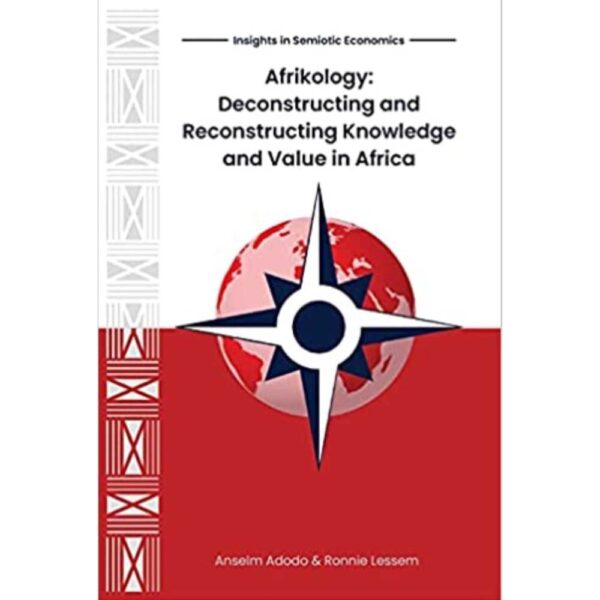During the twentieth century, global politics and economics have been marked by two politically, economically, and intellectually divi – sive rather than culturally and psychologically integrative forces. This has been reflected in the “East/West” mutually antagonistic divide of communism/capitalism and the North/South chasm of wealth and poverty. The result, worldwide, has been, to a considerable degree, stasis and disintegration. In this book, the authors argue that both capitalism and communism were born out of narrow views of our hu – manity, ignoring the cultural richness of the rest of the world.
The evidence is everywhere: climate change, terrorism, rising poverty, political tension, social chaos and food insecurity. But this is not a book of lamentations. The authors present real case studies to dem – onstrate that there is an alternative to the current chaos: Afrikology. It is “Afri-” because it is inspired by ideas initially produced in Africa, the cradle of humankind; it is “ko (logy)” because it is based on logos, the word from which the world was originated, but at the same time, an episteme, a worldly-wise eco-logical knowledge, and consciousness. It stands for a plurality of epistemic directions. Knowledge, therefore, is an interpretation that is always situated within a living communal tradition, co-created by individuals, communities, and enterprises, specifically out of Africa’s genius, alongside others.


![Integral_community-paxyou[1]](https://www.adodoanselm.com/wp-content/uploads/2024/01/Integral_community-paxyou1-330x462.jpg)
![51ZYZtSQXQL[1]](https://www.adodoanselm.com/wp-content/uploads/2024/01/51ZYZtSQXQL1-330x462.jpg)
![71H0-gWIq3L._SL1360_[1]](https://www.adodoanselm.com/wp-content/uploads/2024/01/71H0-gWIq3L._SL1360_1-330x462.jpg)
![new_fontiers_in_african_med-paxyou[1]](https://www.adodoanselm.com/wp-content/uploads/2024/01/new_fontiers_in_african_med-paxyou1-330x462.jpg)
![healing_plants_nigeria-paxyou[1]](https://www.adodoanselm.com/wp-content/uploads/2024/01/healing_plants_nigeria-paxyou1-330x462.jpg)
![the-healing-radiance-of-the-soul[1]](https://www.adodoanselm.com/wp-content/uploads/2024/01/the-healing-radiance-of-the-soul1-330x457.jpg)
![herbal_medicine-paxyou[1]](https://www.adodoanselm.com/wp-content/uploads/2023/12/herbal_medicine-paxyou1-330x462.jpg)
Reviews
There are no reviews yet.